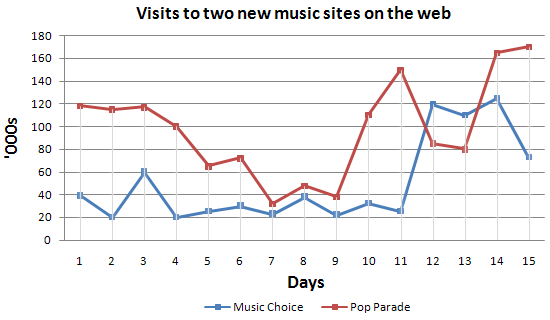Every foreign student intending to study in Italy must obtain an Italian student visa prior to entry into Italy.
To ensure timely processing of visas, the students should (or his parents on their child in the name) to begin the visa application as early as possible but not earlier than three months before the start of the program. We strongly recommend that students do not have to wait until the holiday season, go to the consulate. Not only can the wait be long, but it also makes the processing time for issuing visas for longer than usual.

Students should contact their nearest Italian consulate and follow the instructions for obtaining a visa.
The visa will not be issued on the same day, the process can take up to 60 days.
Italian institutions are required to complete the Letter of Acceptance, Letter of Enrollment, Insurance Letter and dates on your visa application materials.
Student visas are enrolled only for the length of time you will be issued in the program.
Only a visa is issued for study purposes is valid for the final registration at H.Ed. Institution in Italy.
No other type of visa is accepted. Therefore you have to contact the competent Italian diplomatic authority and ask for a student visa in your name. The competent Italian Embassy / Consulate is responsible for taking your pre-application and verify that you meet the requirements for the visa.
Remember
The student visa is issued only upon proof that you:
Italian institutions are required to complete the Letter of Acceptance, Letter of Enrollment, Insurance Letter and dates on your visa application materials.
Student visas are enrolled only for the length of time you will be issued in the program.
Only a visa is issued for study purposes is valid for the final registration at H.Ed. Institution in Italy.
No other type of visa is accepted. Therefore you have to contact the competent Italian diplomatic authority and ask for a student visa in your name. The competent Italian Embassy / Consulate is responsible for taking your pre-application and verify that you meet the requirements for the visa.
Remember
The student visa is issued only upon proof that you:
1. Do you have a suitable accommodation in Italy.
2. May have enough financial means to support himself.
3. Entitled to health care in Italy.
4. Do you have the amount of money necessary to travel back to your country or have already purchased a valid ticket with return flight.
Stay Permits (non-EU citizens)
First Edition
Within 8 days of your arrival, all non-EU citizens who apply for a student visa for Italy to study request for a stay.
The applicant is resident in Italy on presentation - The residence permit is from the local police station (Ufficio Stranieri Questura) issued
A valid passport with a visa to study in Italy.
Proof of sufficient financial means to support himself / herself.
A document proving that his right to medical care in Italy.
Remember
If candidates enrollment decide to move, even if temporarily to another Italian city (for example, programs in Italian language), within 15 days they will contact the relevant police force (Questura), the change of address report.Students who may enter and leave the Italian territory again when they already have to allow a stay.
Renewals
After graduation and at least 30 days before the end of their stay permits, all non-EU foreign students must apply to the Questura for such extended permits for the whole year. On the occasion, each student must demonstrate, have the necessary financial resources to support / herself, a certificate of registration by an Italian H.Ed. issued institution to make and requires all other conditions for granting a residence permit.
Stay Permits (non-EU citizens)
First Edition
Within 8 days of your arrival, all non-EU citizens who apply for a student visa for Italy to study request for a stay.
The applicant is resident in Italy on presentation - The residence permit is from the local police station (Ufficio Stranieri Questura) issued
A valid passport with a visa to study in Italy.
Proof of sufficient financial means to support himself / herself.
A document proving that his right to medical care in Italy.
Remember
If candidates enrollment decide to move, even if temporarily to another Italian city (for example, programs in Italian language), within 15 days they will contact the relevant police force (Questura), the change of address report.Students who may enter and leave the Italian territory again when they already have to allow a stay.
Renewals
After graduation and at least 30 days before the end of their stay permits, all non-EU foreign students must apply to the Questura for such extended permits for the whole year. On the occasion, each student must demonstrate, have the necessary financial resources to support / herself, a certificate of registration by an Italian H.Ed. issued institution to make and requires all other conditions for granting a residence permit.
Both study visas and residence permits, the students who have passed a test are, in the first year of their degrees, and at least two tests in the following years, renewed for the profitability of a credit rating as determined by the institutions.
The residence permit can also be a student who is only a trial, on proof of a state of very poor health or other serious reasons existed to be extended. All that notwithstanding the provisions regarding the global number of possible extensions, yes, residence permits does not affect more than 3 years after the legal duration of studies (Article 46, § 4 of Presidential Decree No. 394 issued on 31 August 1999)
The residence permit can also be a student who is only a trial, on proof of a state of very poor health or other serious reasons existed to be extended. All that notwithstanding the provisions regarding the global number of possible extensions, yes, residence permits does not affect more than 3 years after the legal duration of studies (Article 46, § 4 of Presidential Decree No. 394 issued on 31 August 1999)
Sustenance (non-EU citizens living outside Italy)
To get a student visa for Italy, non-EU citizens must show that they have sufficient means to support themselves there. Such proof can be economic guarantees given by:
Italian creditworthy institutions and organizations, or foreign governments or foreign institutions and bodies shall be regarded as reliable by the competent Italian diplomatic authority.
Italian creditworthy institutions and organizations, or foreign governments or foreign institutions and bodies shall be regarded as reliable by the competent Italian diplomatic authority.
Currently, the minimum amount of money is regarded as indispensable € 350.57 per month for every month of the academic year.
Remember
The mere nomination of a grant from the Italian government not as a valid proof of your ability to support in Italy.
Remember
The mere nomination of a grant from the Italian government not as a valid proof of your ability to support in Italy.















